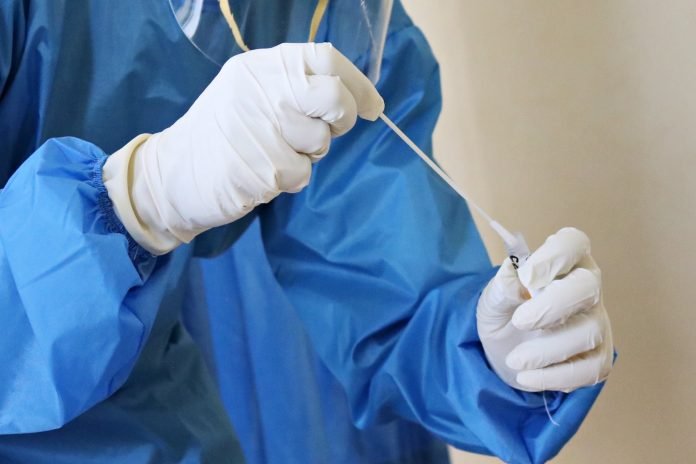
In a new study from UCL and elsewhere, researchers found the SARS-CoV-2 Alpha (B.1.1.7) variant mutated to evade our ‘innate immune system’, helping establish it as the world’s first ‘Variant of Concern’.
They found the Alpha variant, first identified in the UK, evolved to make more of its ‘antagonism proteins’ that nullify the body’s first line of defense, known as the ‘innate immune system’.
Every cell in the nose, throat and lungs (airways) have a network of sensors that detect incoming viruses.
When this happens the cells produce the protein interferon, which acts like a ‘burglar alarm’ and orchestrates a blanket anti-viral response, across both non-immune and immune cells (T cells and antibodies) to avert infection.
But antagonism proteins can help the virus to evade these sensors.
In the study, the team found that that the SARS-CoV-2 Alpha variant had adapted to avoid triggering our defensive frontline innate immune response much better than the first wave viruses.
They discovered it does this by making more of the virus proteins that can disable the innate immune system. These proteins are called N, Orf6 and Orf9b and are known as innate immune antagonists.
By mutating to evade our innate immune system, the Alpha variant can replicate under the radar in the early stages of infection, which significantly increases its chances of infecting a person when it lands in their nose, throat or lungs.
For a virus this is a resounding success, enabling it to more efficiently spread from person to person.
Scientists say the breakthrough findings provide a powerful insight into how SARS-CoV-2 is evolving, and offer a fresh clue to help identify new and emerging Variants of Concern, which are both highly transmissible and infectious.
If you care about COVID, please read studies about why people with diabetes more likely to get severe COVID-19, and how to take care of your lungs during COVID and beyond.
For more information about COVID, please see recent studies about everything you need to know about COVID-19 booster shots, and results showing that aspirin and other drugs for inflammation could help prevent COVID-19 deaths.
The study is published in Nature. One author of the study is Dr. Lucy Thorne.
Copyright © 2021 Knowridge Science Report. All rights reserved.



